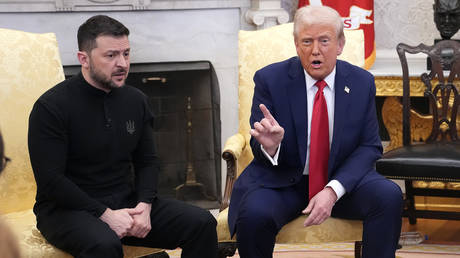Sirte, Libya – October 20, 2011 – Muammar Gaddafi, the eccentric and autocratic leader who ruled Libya for 42 years, was captured and killed on this day in his hometown of Sirte, marking a brutal end to the 2011 Libyan civil war. His death brought a wave of international relief and jubilation, particularly from Western nations that had backed the rebel uprising, but also sparked calls for investigations into the legality of his demise and underscored the complex challenges facing post-Gaddafi Libya.
The Final Hours: Capture and Controversial Death
On the morning of October 20, Gaddafi attempted to escape Sirte in a 75-vehicle convoy, accompanied by his son Mutassim and loyalists. The convoy was targeted by NATO air strikes, specifically a Predator drone and French Mirage jets, which disabled several vehicles. Gaddafi survived the initial strikes, taking refuge in a villa and later in drainage pipes under a road. Injured by grenade fragments, he was eventually discovered and captured by Misrata-based rebel militias.
Eyewitness testimonies and graphic mobile phone videos show a bleeding but alive Gaddafi being dragged from the pipe, subjected to a brutal assault by a mob of rebel fighters. He was reportedly beaten, kicked, and stabbed with a bayonet before being transported. Accounts of his death diverge, with some National Transitional Council (NTC) officials claiming he was killed in crossfire. However, forensic examinations in Misrata revealed gunshot wounds to his head and abdomen, consistent with close-range shots, leading many to conclude he was executed after capture. His body, along with that of his son Mutassim, was later publicly displayed before a secret burial.
Evidence Points to Extrajudicial Killing and War Crimes
Investigations by organizations like Human Rights Watch (HRW) and the United Nations have largely concluded that Gaddafi’s death was an extrajudicial killing, violating international law. HRW's report, "Death of a Dictator: Bloody Vengeance in Sirte," documented the summary execution of at least 53-66 captured loyalists near the Mahari Hotel in Sirte, their hands bound or bearing close-range wounds, further indicating widespread war crimes committed by militia members. The UN Human Rights Council and the International Criminal Court called for thorough inquiries, which Libya’s transitional authorities largely failed to pursue.
International Reactions: Jubilation, Caution, and Criticism
The international community's response to Gaddafi's death was a mix of triumph and apprehension.
Western Powers: Leaders in the United States, France, and the United Kingdom largely celebrated the end of Gaddafi's tyrannical rule. President Barack Obama declared "the shadow of tyranny...has been lifted," while French President Nicolas Sarkozy and British Prime Minister David Cameron hailed it as a victory for liberation and NATO's intervention. NATO, which had enforced a no-fly zone and civilian protection mission under UN Resolution 1973, declared its mission fulfilled within weeks.
United Nations: UN Secretary-General Ban Ki-moon urged Libyans to avoid reprisal attacks and called for an investigation into Gaddafi's death. The UN General Assembly had already recognized the National Transitional Council (NTC) as Libya's legitimate representative prior to his demise, and the UN Security Council eased sanctions to aid reconstruction.
African and Latin American Responses: Reactions from the African Union (AU) were more mixed. Initially concerned about the Western intervention's impact on African sovereignty, the AU later recognized the NTC. Some African and Latin American leaders condemned NATO's actions as "imperialist aggression."

A Decade of Instability Follows
Despite the initial optimism, the collapse of Gaddafi's regime plunged Libya into a prolonged period of instability. Western governments and NATO were later criticized for failing to plan for post-war reconstruction, leaving a power vacuum that fueled renewed civil conflict by 2014. The UN established the United Nations Support Mission in Libya (UNSMIL) to guide the transition, but foreign interference, internal divisions, and the proliferation of militias undermined efforts to build a stable democracy.
Gaddafi's death, while closing a chapter on decades of autocratic rule, ultimately marked the beginning of a challenging and often violent path for Libya, demonstrating the complex and often unforeseen consequences of international intervention.













